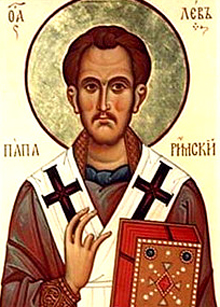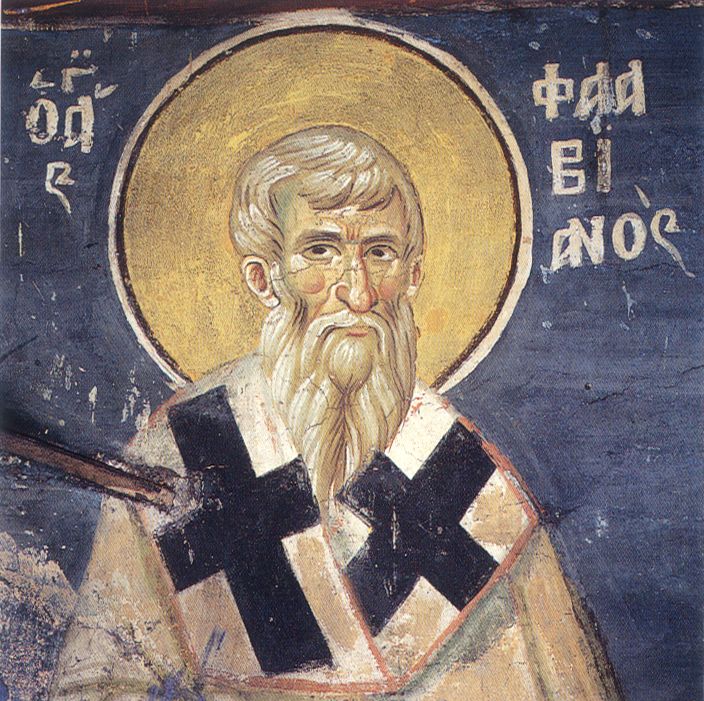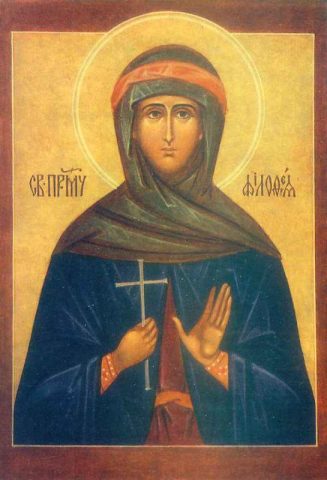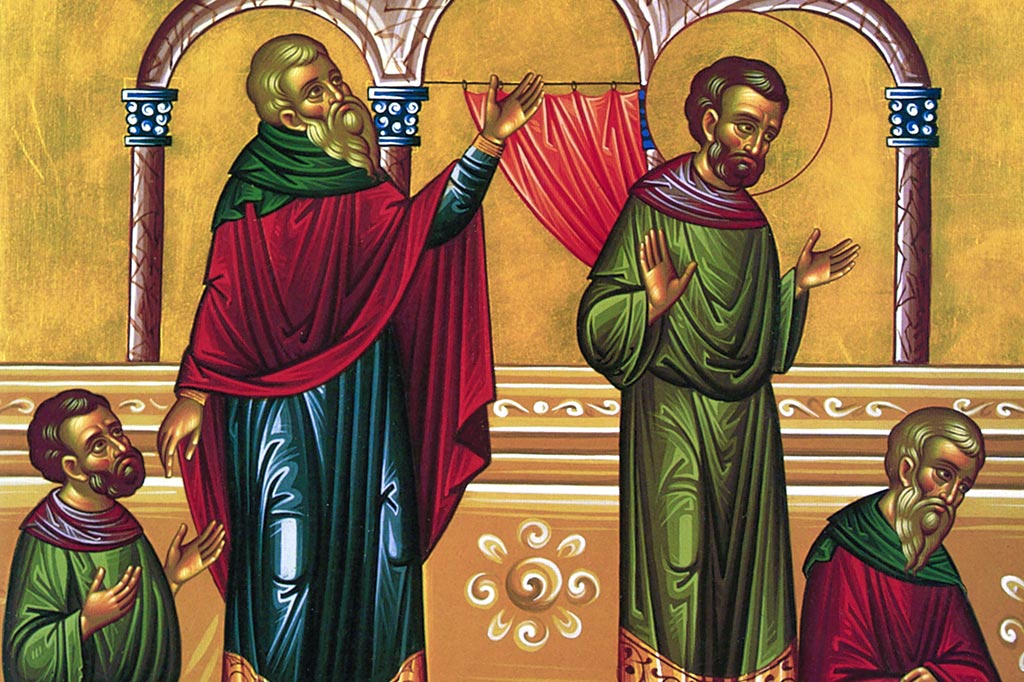Sunday of Meatfare of the Last Judgment
![]() Today’s Gospel reading is Matthew 25:31-46, the parable of the Last Judgment. It reminds us that while trusting in Christ’s love and mercy, we must not forget His righteous judgment when He comes again in glory. If our hearts remain hardened and unrepentant, we should not expect the Lord to overlook our transgressions simply because He is a good and loving God. Although He does not desire the death of a sinner, He also expects us to turn from our wickedness and live (Ezek. 33:11). This same idea is expressed in the prayer read by the priest after the penitent has confessed his or her sins (Slavic practice).
Today’s Gospel reading is Matthew 25:31-46, the parable of the Last Judgment. It reminds us that while trusting in Christ’s love and mercy, we must not forget His righteous judgment when He comes again in glory. If our hearts remain hardened and unrepentant, we should not expect the Lord to overlook our transgressions simply because He is a good and loving God. Although He does not desire the death of a sinner, He also expects us to turn from our wickedness and live (Ezek. 33:11). This same idea is expressed in the prayer read by the priest after the penitent has confessed his or her sins (Slavic practice).
Saint Leo the Great, Pope of Rome
 Saint Leo I the Great, Pope of Rome (440-461), received a fine and diverse education, which opened for him the possibility of an excellent worldly career. He yearned for the spiritual life, however, and so he chose the path of becoming an archdeacon under holy Pope Sixtus III (432-440), after whose death Saint Leo was chosen as Bishop of Rome in September 440.
Saint Leo I the Great, Pope of Rome (440-461), received a fine and diverse education, which opened for him the possibility of an excellent worldly career. He yearned for the spiritual life, however, and so he chose the path of becoming an archdeacon under holy Pope Sixtus III (432-440), after whose death Saint Leo was chosen as Bishop of Rome in September 440.
These were difficult times for the Church, when heretics assaulted Orthodoxy with their false teachings. Saint Leo combined pastoral solicitude and goodness with an unshakable firmness in the confession of the Faith. He was in particular one of the basic defenders of Orthodoxy against the heresies of Eutyches and Dioscorus, who taught that there was only one nature in the Lord Jesus Christ. He was also a defender against the heresy of Nestorius.
Saint Flavian the Confessor, Patriarch of Constantinople
 Saint Flavian the Confessor, Patriarch of Constantinople, occupied the patriarchal throne of Constantinople under the holy Emperor Theodosius the Younger (408-450) and his sister the holy Empress Pulcheria (September 10).
Saint Flavian the Confessor, Patriarch of Constantinople, occupied the patriarchal throne of Constantinople under the holy Emperor Theodosius the Younger (408-450) and his sister the holy Empress Pulcheria (September 10).
At first he was a presbyter and caretaker of church-vessels in the cathedral. He became Patriarch after the death of holy Patriarch Proclus (November 20). During this time, various disturbances and heresies threatened church unity.
Saint Philothea of Athens
 This bright star of compassion arose in the dark days of the Turkish occupation to shed God’s mercy upon the oppressed people of Athens and to guide many endangered souls onto the path of righteousness.
This bright star of compassion arose in the dark days of the Turkish occupation to shed God’s mercy upon the oppressed people of Athens and to guide many endangered souls onto the path of righteousness.
Her birth in 1528 into the aristocratic Venizelou family was seen as a miraculous answer to her mother’s prayers of many years. Even as a child, she showed a remarkable inclination for the life of ascesis and contemplation. However, as a sought-after heiress, she was married against her inclination at the age of twelve to a harsh, violent man whose moods and ill-treatment of her she bored with patience, while praying for his change of heart. After three years, the death of her tyrannical husband freed her from the bonds of matrimony and, despite the urging of her kinsfolk, she would not consider a second marriage, but entirely devoted herself to pleasing the Lord by prayer and fasting, while remaining under her parents’ roof. On their death ten years later, she used the whole of her great fortune to found a convent according to directions given to her in a vision by the holy Apostle Andrew, to whom the house was dedicated. [This monastery was situated on the site of the present cathedral (Metropolis) of Athens.] Not only did she see to the construction of cells and of all the other buildings that a monastery needs, but she also founded a whole range of charitable institutions alongside it: a hospital, hospices for the poor and the aged, various workshops and, above all, schools where the girls and boys of Athens could receive a Christian education. To support the monastery and its associated institutions, she provided an endowment of landed estates and dependencies (metochia), which also enabled alms to be distributed on a generous scale. St. Philothea’s monastery thus soon became for Athens a source of heavenly blessings, a haven for the afflicted and a focus for the revival of the tradition of the Greek people.
Sunday of the Publican and Pharisee
 Introduction
Introduction
The Sunday of the Publican and the Pharisee is the first Sunday of a three-week period prior to the commencement of Great Lent. It marks the beginning of a time of preparation for the spiritual journey of Lent, a time for Orthodox Christians to draw closer to God through worship, prayer, fasting, and acts of charity. It is also on this day that the Triodion is introduced, a liturgical book that contains the services from this Sunday, the tenth before Pascha (Easter), to Great and Holy Saturday.

